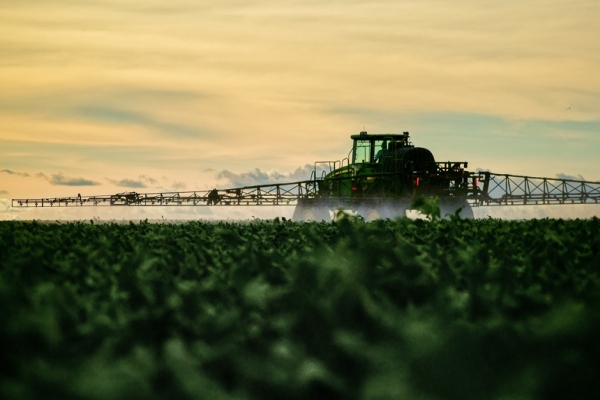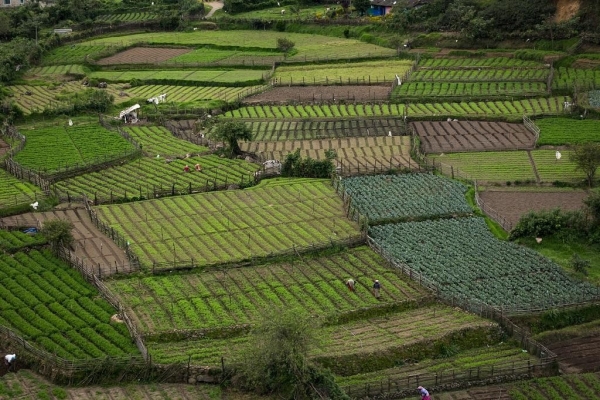The Puzzling Absence of ERP in Agriculture: Why Are Farms Still Stuck in the Past?
- أبريل 1, 2025
- 3 minutes

While factories and warehouses worldwide embrace Enterprise Resource Planning (ERP) systems to track every bolt and shipment, our farms—the backbone of human survival—continue operating with surprisingly basic management tools. This technological gap isn’t just curious; it’s concerning.
Consider this: Manufacturing has used ERP for decades to optimize everything from inventory to human resources, yet many large-scale agricultural operations still rely on spreadsheets, paper records, or simplistic software. In a world where efficiency determines survival, why are the very businesses that feed us lagging behind?
The problem stems from multiple directions. First, ERP developers have largely overlooked agriculture’s unique needs. Unlike manufacturing’s predictable environments, farming contends with weather variability, seasonal workflows, biological uncertainties, and complex land management requirements that don’t fit neatly into traditional ERP frameworks.
Second, the agricultural industry itself has been hesitant to demand better solutions. Many operations continue family traditions spanning generations, creating resistance to radical technological shifts that manufacturing businesses have more readily embraced.
Empowering Farmers’ Cooperatives Through ERP
Farmers’ cooperatives represent a perfect entry point for agricultural ERP adoption. These collectives already understand the power of pooling resources—ERP would simply digitize and enhance this existing model. An effective cooperative ERP could track shared equipment usage and maintenance schedules, preventing costly breakdowns during critical planting or harvest windows.
Beyond equipment, these systems could revolutionize purchasing by aggregating orders across dozens or hundreds of farms, unlocking volume discounts previously available only to corporate giants. The cooperative ERP could manage complex inventory across multiple locations, ensuring inputs like seeds, fertilizers, and crop protection products are available precisely when needed.
Perhaps most valuably, a cooperative-based ERP could strengthen farmers’ market position by coordinating sales timing, quality standards, and logistics, allowing small producers to access markets previously beyond their reach individually. This collective power through technology could help preserve family farming while improving its economic viability.
Regional Agricultural ERP: A Game Changer for Rural Communities
Expanding beyond individual cooperatives, entire agricultural regions could implement coordinated ERP systems with transformative effects. Such systems could optimize irrigation scheduling across thousands of acres, preventing waste while ensuring adequate water availability during critical growth periods. They could coordinate regional crop rotation strategies to break pest cycles naturally, reducing chemical dependency.
Regional ERPs could also revolutionize transportation logistics by matching available trucks with harvest schedules, dramatically reducing spoilage and fuel consumption. They could provide real-time decision support during weather emergencies, helping entire communities respond cohesively to threats from frost, flood, or drought.
Most importantly, regional data aggregation would create powerful insights unavailable at smaller scales. Patterns in soil fertility, pest pressure, and yield variability would emerge, allowing for precisely targeted interventions that improve productivity while reducing environmental impact. Local governments and agricultural extension services could use this data to design more effective support programs tailored to actual regional needs.
The Future of Agriculture Depends on Closing the Technology Gap
The benefits of agricultural ERP extend beyond efficiency. Modern systems could provide unprecedented environmental stewardship through precise resource tracking, reduce waste by optimizing distribution chains, and improve food safety through enhanced traceability.
For technology companies, agriculture represents an enormous untapped market. The first companies to effectively bridge this gap will find eager customers in an industry increasingly pressured to produce more with less.
The question isn’t whether agriculture needs ERP systems—it clearly does. The real question is: why has this technology gap persisted for so long, and who will finally bridge it? As climate challenges intensify and food security concerns grow, agricultural operations can no longer afford to manage their businesses with outdated tools while the rest of the world races ahead.
#AgTech #FarmingTechnology #AgriculturalInnovation #ERP #DigitalAgriculture #FoodSecurity #SustainableFarming #AgricultureTechnology #SmartFarming #RuralDevelopment #FarmManagement #CooperativeFarming










